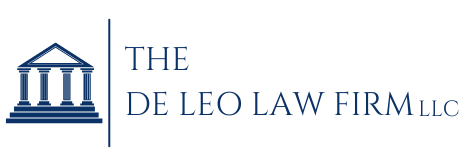The Difference Between Chapter 7 and Chapter 13 Bankruptcy
The Difference Between Chapter 7 and Chapter 13 Bankruptcy
When facing overwhelming debt, bankruptcy may offer a way to regain financial stability. However, it’s important to recognize that not all bankruptcy options are the same. The two most common forms of bankruptcy for individuals are Chapter 7 and Chapter 13, each with its own distinct features. In this post, we’ll examine the key differences between Chapter 7 and Chapter 13 bankruptcy to help you determine which option might be right for you.
What is Chapter 7 Bankruptcy?
Chapter 7 bankruptcy, often called "liquidation bankruptcy," allows individuals to discharge most of their unsecured debt. This includes credit card balances, medical bills, and personal loans. In Chapter 7, a court-appointed trustee sells non-exempt assets to repay creditors. Once the liquidation process is complete, the remaining eligible debts are erased, offering a fresh start for those struggling with financial burdens.
While this process can provide quick relief, not all individuals qualify for Chapter 7 bankruptcy. Eligibility depends on income and the means test, which evaluates whether your income is low enough to file under this chapter. If you have significant assets or a higher income, you may not qualify for Chapter 7 bankruptcy.
What is Chapter 13 Bankruptcy?
Chapter 13 bankruptcy is often referred to as "reorganization bankruptcy" because it allows individuals to keep their property while reorganizing their debts into an affordable repayment plan. Unlike Chapter 7, there is no liquidation of assets in Chapter 13. Instead, the individual agrees to a court-approved repayment plan, which typically spans three to five years. During this time, you make monthly payments to a trustee, who distributes the funds to your creditors.
Chapter 13 bankruptcy is ideal for people who have steady income and wish to retain their property, such as a home or car, which they may risk losing in Chapter 7. Additionally, Chapter 13 allows for the discharge of certain debts that are not eligible for discharge under Chapter 7, such as some tax debts or overdue child support.
Key Differences Between Chapter 7 and Chapter 13 Bankruptcy
Eligibility Requirements:
- Chapter 7: Requires a means test to determine eligibility based on income. It is more suited for individuals with lower income and fewer assets.
- Chapter 13: Available to those with regular income and the ability to commit to a repayment plan over several years. There are no specific income requirements, but debt limits apply.
Asset Liquidation:
- Chapter 7: May involve the liquidation of non-exempt assets to pay creditors.
- Chapter 13: No assets are liquidated; instead, the debtor agrees to repay debts through a structured repayment plan.
Repayment:
- Chapter 7: Offers a quicker process, with most debts discharged within a few months.
- Chapter 13: Involves long-term repayment plans, typically lasting three to five years.
Which Option is Right for You?
The choice between Chapter 7 and Chapter 13 bankruptcy largely depends on your financial situation. If you have significant unsecured debt and limited assets, Chapter 7 may be the best option to eliminate your debt quickly. On the other hand, if you have a steady income, own valuable property, or need more time to pay off debts, Chapter 13 could provide a more appropriate solution.
Consulting with a knowledgeable bankruptcy attorney can help you make an informed decision based on your unique circumstances.
Both Chapter 7 and Chapter 13 bankruptcy provide ways to eliminate or restructure debt, but they operate differently and come with different eligibility requirements. Whether you’re looking to discharge your debts quickly or protect your assets while paying off what you owe, each option offers distinct benefits. If you are struggling with debt, it’s important to explore all of your bankruptcy options to determine which one aligns best with your financial goals.











